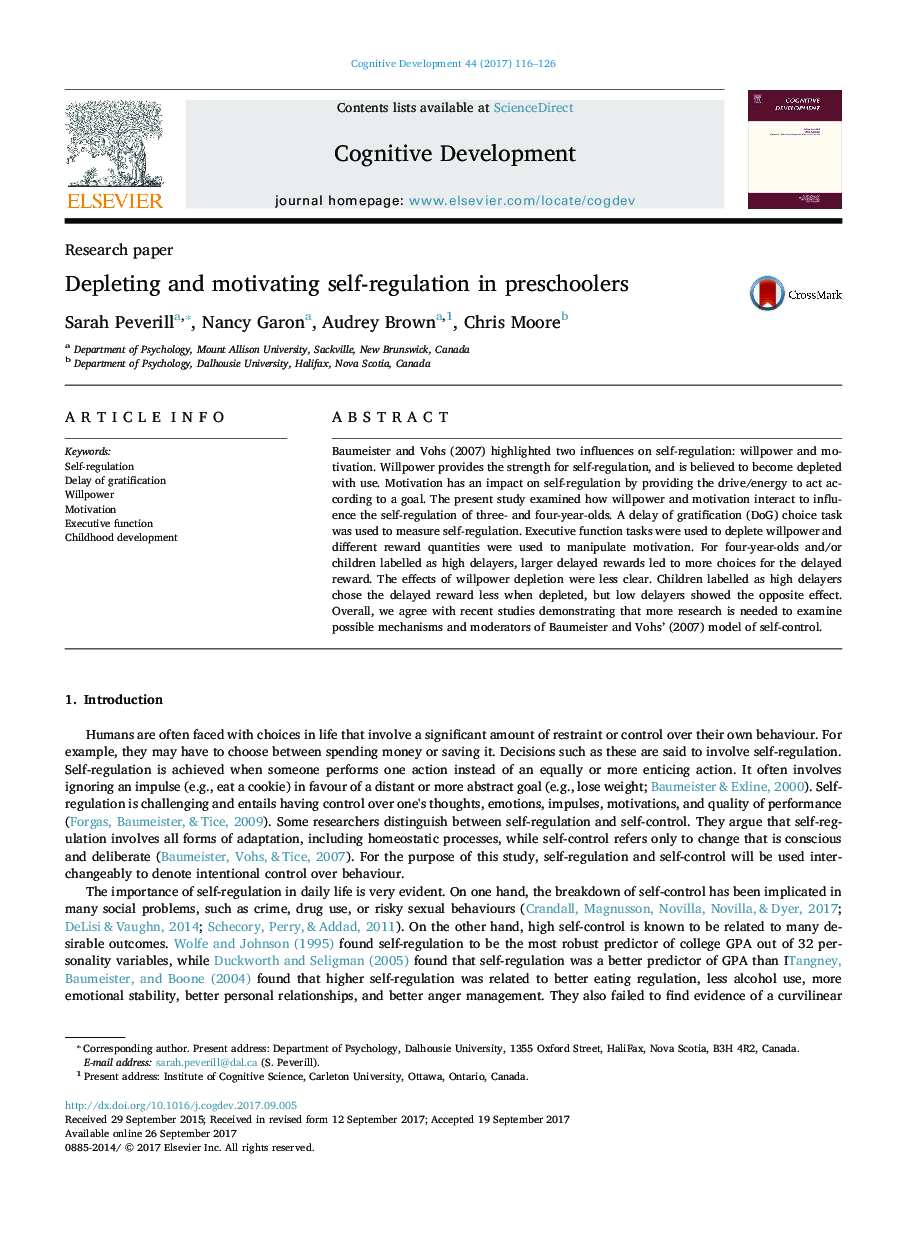| Article ID | Journal | Published Year | Pages | File Type |
|---|---|---|---|---|
| 5039631 | Cognitive Development | 2017 | 11 Pages |
â¢Influence of willpower and motivation on self-regulation was examined.â¢Increasing motivation via reward quantities improved self-regulation.â¢Effects of willpower depletion were less clear.â¢Children at different developmental levels respond differently to depletion.
Baumeister and Vohs (2007) highlighted two influences on self-regulation: willpower and motivation. Willpower provides the strength for self-regulation, and is believed to become depleted with use. Motivation has an impact on self-regulation by providing the drive/energy to act according to a goal. The present study examined how willpower and motivation interact to influence the self-regulation of three- and four-year-olds. A delay of gratification (DoG) choice task was used to measure self-regulation. Executive function tasks were used to deplete willpower and different reward quantities were used to manipulate motivation. For four-year-olds and/or children labelled as high delayers, larger delayed rewards led to more choices for the delayed reward. The effects of willpower depletion were less clear. Children labelled as high delayers chose the delayed reward less when depleted, but low delayers showed the opposite effect. Overall, we agree with recent studies demonstrating that more research is needed to examine possible mechanisms and moderators of Baumeister and Vohs' (2007) model of self-control.
